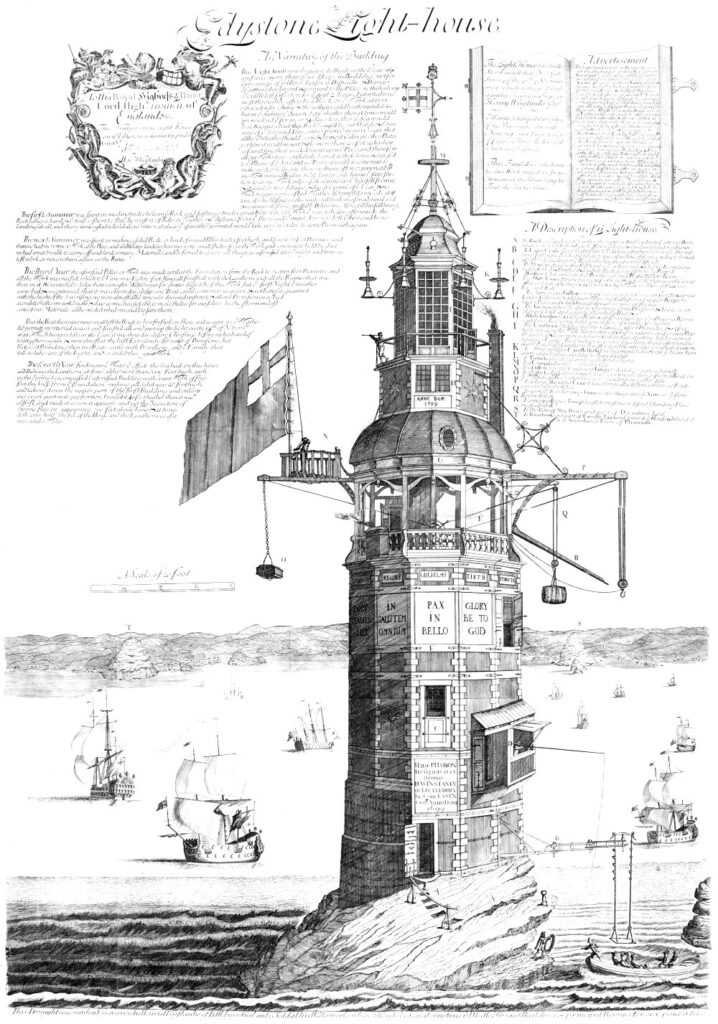
Lighthouse design is all about visibility. These small towers act as beacons for ships at night, alerting captains to various landforms and aiding in navigation. The taller these buildings are, the further away they can be seen. Therefore, the effectiveness of any given lighthouse is based on verticality.
Pictured above is the first recorded offshore lighthouse in the world. It was built from 1696 to 1698 off the coast of Southern England, on a shallow reef known as the Eddystone Rocks. It’s creator, Henry Winstanley, had previously lost a couple ships to the reef and decided to build a lighthouse to warn others not to approach the area. His design is unique for its flourishes of ornament and overall busy-looking design. The first thing I noticed were the cranes cantilevering from each side, which were used to haul heavy loads up from boats down below. The second is the massive and elaborate cupola, which includes the lighting element. It resembles a renaissance church in its styling, which is unique in lighthouse design.
Unfortunately, the lighthouse was destroyed by the Great Storm of 1703, which wiped out all traces of the structure and killed Winstanley himself, who was working on additions to the structure at the time. The current building, which is the fourth to be built on the site, is a much more conventional design without the panache of the original.